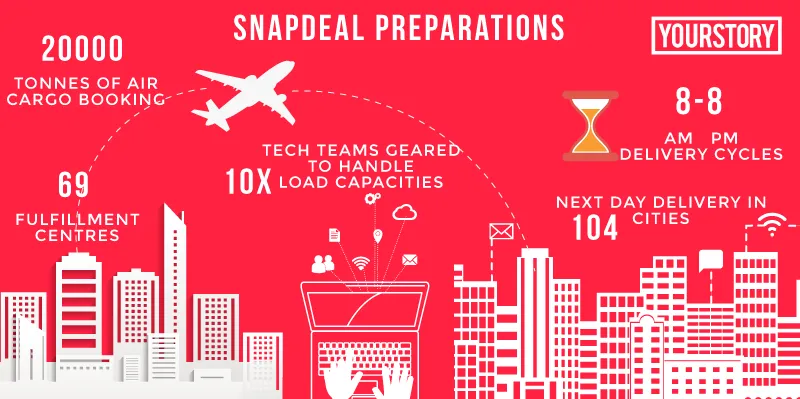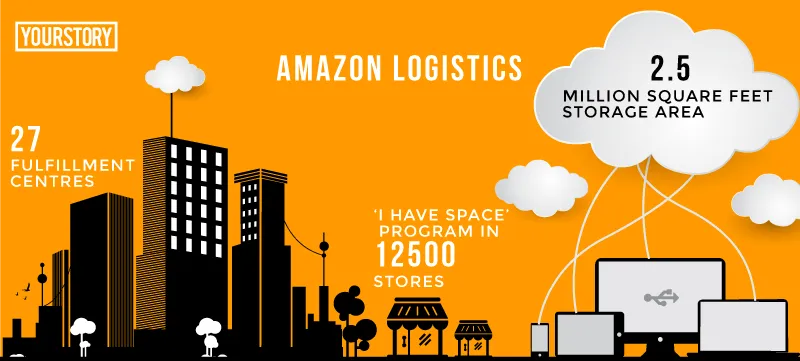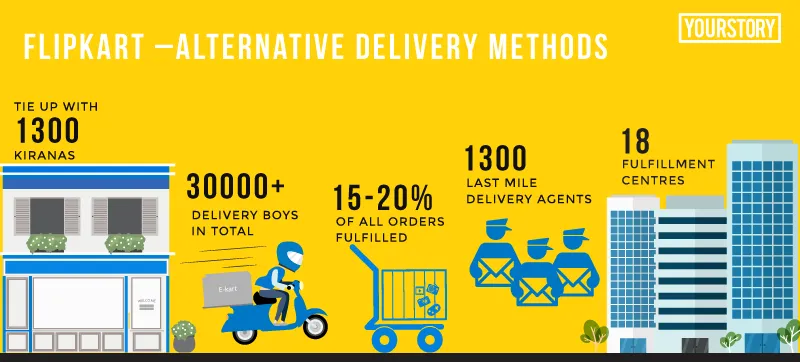For Flipkart, Snapdeal, Amazon, logistics is the hero for this festive season
The much-hyped e-commerce festive season sales have begun, and all major players have been throwing about six-digit and seven-digit sales volume figures in the past three days. While sellers and customers celebrate the huge selection and competitive prices, it is the backend efficiency that really makes the whole process work.

In principle, online marketplaces carry out the packing-shipping-delivery of orders placed on their portals. The holy trinity of Indian e-commerce – Flipkart, Snapdeal and Amazon – have been pushing themselves like never before to ensure the smooth transport of shipments and on-time delivery.
Being horizontal players makes it essential for them to have storage capacity and transportation services for every order placed on their platform, from fashion and electronics to FMCG items and large appliances. It looks like the last couple of years have shown them what to expect, and the three competitors have prepared for it well in advance.
For faster delivery
Catering to thousands of towns and cities and millions of customers in a short time is no easy task. The preparations have been done even in packaging. In fact, Snapdeal claims that in the run up to Diwali, all pre-shipment checks on fast moving items like mobile phones, power banks, large appliances, and electronics have already been done, allowing packets to be dispatched within minutes of the order being received.
Snapdeal is expecting to cover nearly 30,000 pincodes, including distant locations like Leh, Port Blair and the Lakshwadeep islands. Saurabh Bansal, VP, Category Management, told YourStory, “To ensure fast deliveries across the country, nearly 20,000 tonnes of cargo will move by air, for which bulk bookings have been done by Snapdeal’s logistics partners.” According to a study by RedSeer Consultants, Snapdeal had the fastest delivery time for five out of the first seven months in 2016.
Saurabh added, “Snapdeal has also tied up with leading brands to ensure that all appliance installations are scheduled within one working day of the delivery. Managing a majority of our shipments through strategically-located fulfilment centres, we are operating closer to customer clusters, thereby reducing the last mile delivery gaps and keeping end-to-end visibility on all shipments.”

US-based Amazon, which claims to have the largest storage capacity and warehouse infrastructure for sellers in the Indian e-commerce industry, has improved its capabilities since last year. Manish Tiwary, VP - Category Management, Amazon India, says that 80 percent of their sellers use Amazon’s logistics and warehousing services. With a 200 percent growth in the number of sellers from last year, Amazon now has 120,000, while Flipkart has 100,000 and Snapdeal has 300,000.
Besides increasing their fulfilment capacity by one and a half times over that of last year, Amazon has also tied up with local stores to ensure faster delivery. Manish adds, “Under the ‘I Have Space’ programme, Amazon India partners with local store owners across different cities to deliver products to customers within a two to four kilometre radius of their store. Several of these stores also double up as pick-up points and receive deliveries on behalf of customers. These local entrepreneurs understand their area well and have immense goodwill in their neighbourhood, allowing them to efficiently deliver and receive products.” This effort is similar to Flipkart’s alternative delivery methods.

Prime-Assured-Gold
In July, the ‘Amazon Prime’ membership programme was launched in India in over 100 cities, to provide unlimited free one-day and two-day delivery. Soon, Flipkart followed with ‘Flipkart Assured’, which aims to ensure that high quality products are delivered within two to four days. ‘Snapdeal Gold’ was launched a day later, to offer next-day free delivery in select areas and standard free delivery everywhere else for its customers.
The festive sales season will test the reliability of these services, with millions of shoppers buying at a high speed. Snapdeal and Flipkart have each hired about 10,000 temporary staff for the sales season from October to November – the festive period which contributes to more than 40 percent of the GMV for the Indian e-commerce industry. In an email, a Flipkart spokesperson said, “We have hired more than 10,000 temporary staff in logistics and last mile across the country, including delivery staff on bikes, to take care of the massive demand that we are expecting during the festive season and ensure that the delivery of items to customers happens as per the promised time. The investment in BBD will continue as in years before.”

Beyond delivery
In India, the festive season sale is believed to be the test of strength for all three players – with the winner emerging as the market leader of sorts. Logistics is the backbone that drives online retail. However, challenges are many for Indian logistics services due to poor infrastructure.
Large items need more dedicated trucks, and sometimes trained personnel too, while high ticket items are easy to be stolen or sold in black market. In fact, every step has its own challenges - weather conditions, manpower availability, and poor pincode mapping among them. Warehouse staff need to ensure zero errors, so that the item won’t end up in a wrong geography or with a wrong customer.
Will the Flipkart Big Billion Sale, Snapdeal Unbox Zindagi and Amazon Great Indian Festival get it all right?







